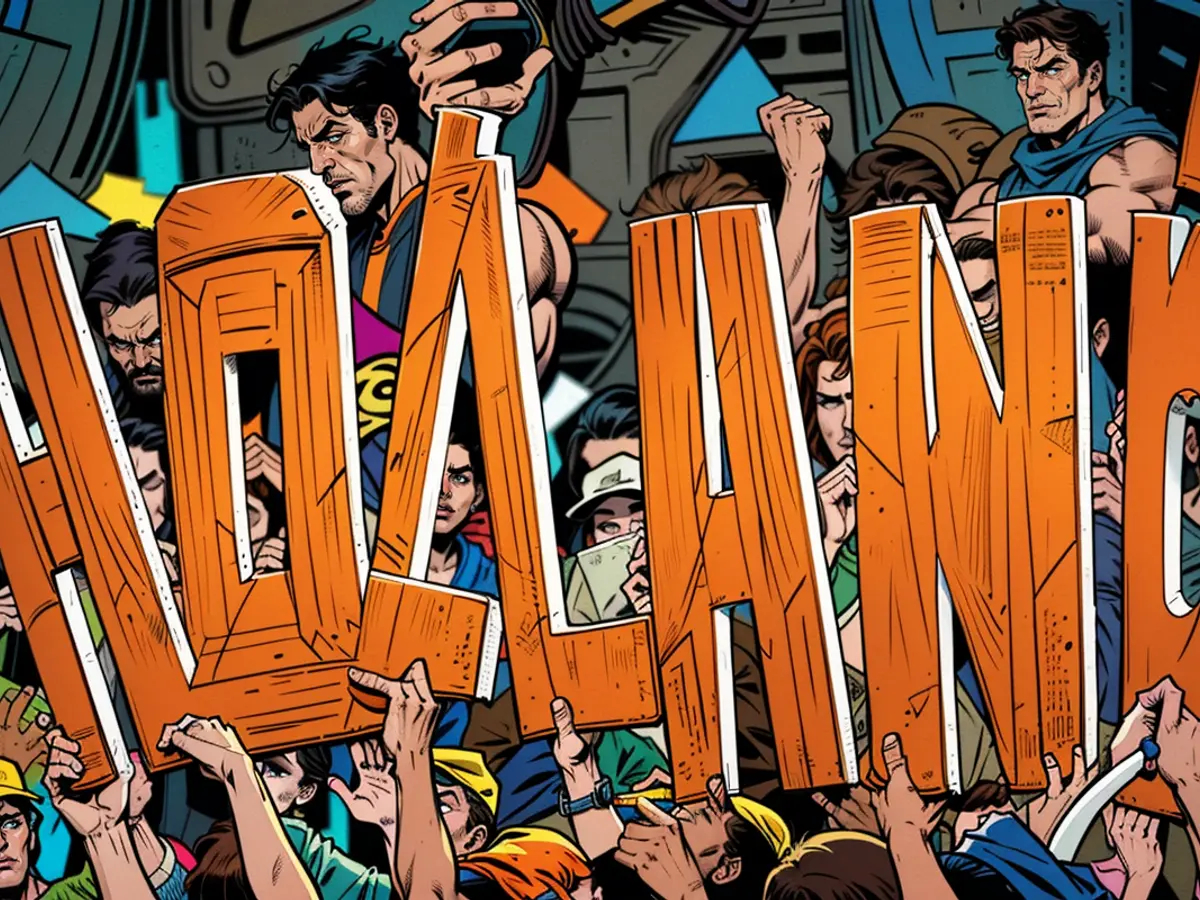The profound origins of the football rivalry between Germany and the Netherlands stem from long ago.
Whenever the German national football team squares off against the Dutch "Elftal", an extra layer of tension always hangs over the contest. This unique rivalry has roots that run deeper than might be thought, extending beyond the realm of sports. As Götz Widmann of the band "Joint Venture" once put it, "I love Super Skunk and I love Sause speciaal. But there's one thing I'm mega-national about. It's something that's grown over the years and is now pretty set in stone. Whenever it comes to football, I hate Holland like the plague."
The 1970s saw the popularity of a classic joke among children. It had to be told at least once during every visit to the Dutch neighbors: "Why do Dutch children have such big ears?" "That's because their fathers used to lift them up by the ears at the border and say, 'Look over there, that's where the world champions live!'"
"Unyielding Enmity"
And the 1974 World Cup final was a real setback for several generations of Dutch fans. The goalkeeper of the victorious 1988 European Championship team, Hans van Breuckelen, described his feelings after the game: "I was 17 and sitting in front of the TV in my orange shirt. I still remember how sick I felt after the game." This bitter enmity led to actions such as Ronald Koeman wiping his butt with Olaf Thon's exchanged jersey after the semi-final victory against Germany in 1988, driven by "unyielding enmity," as he later put it.
"Finally, revenge!" wrote "De Telegraaf" at the time, recalling the humiliation of 1974. "These Germans can never beat us," said the future Bundesliga coach and then-player Arie Haan before the Munich final - expressing a feeling that German national player Bernd Hölzenbein described after the final: "We decided to look them in the eye to show that we were just as big as them. They felt invincible - you could see it in their eyes. Their attitude towards us was: 'By how many goals do you want to lose today, guys?'"
"Don't always go for the jugular"
However, it didn't turn out that way, mainly thanks to one person - Berti Vogts. As the Swedish newspaper "Aftonbladet" wrote after the final: "The living lawnmower Vogts managed the impossible and threw Cruyff off balance." Dutch national player Johan Cruyff complained to Vogts personally after just seven minutes in the final: "Play football, don't always go for the jugular." But the German "lawnmower" just shrugged and replied: "Sorry. That's the only way I can hold you." Cruyff's performance was also hindered by another incident involving "champagne, naked girls, and a cool bath" - and adding fuel to the fire of this unique rivalry.
Indeed, the Dutch side seemed to have a more intense dislike from the beginning. This can be partly attributed to the time of the German occupation during World War II. After the Wehrmacht left, many German soldiers stole the nearest bicycle, giving rise to the phrase "Give me back my bicycle," which is still used today to describe overly insensitive Germans in their own country. When the Dutch met the Germans in the semi-finals of the 1988 European Championship in Germany, banners were hung in the Volkspark Stadium saying, "Grandma, we found your bicycle!"
"Watch out, they'll do it again"
Dutch referee Frans Derks, influenced by his father's accounts of that time, also described the depth of these wartime roots. He once told the following story: "I promised my father two things before he died: I would never go to Germany for fun, and under my leadership, a German club would never win. I kept my promise. When we talk about Germany, we're also talking about a people who produced great minds like Goethe and Schiller. But after years of study, I have a piece of advice: Watch out, because they'll do it again!"
Before the European Cup match between Katowice and 1. FC Köln, Derks visited Auschwitz. He was so shaken that he didn't want to referee the game. The only thing he could do was not let the German team win. The match ended in a draw, and surprisingly, the Germans were satisfied with his performance.
This story illustrates how deeply this sporting rivalry has been shaped by shared history, and likely still is in some ways. But amidst all the animosity, mutual admiration and respect have always been present, as shown by a small anecdote about the recently deceased Johan Neeskens. The East German player Gerd Kische was to be recruited by the Stasi but refused their advances. They still entered a possible codename for him in his file: "IM Neesken."
When inquired by the Stasi about his preferred alias and favorite footballer, Kische responded with, "Johan Neeskins." It seems the Stasi neglected to include the crucial "s" at the end of his name. Kische jokingly speculated that perhaps they weren't truly football enthusiasts. He was thrilled to have shared the field with his Dutch role model during the 1974 World Cup, an experience that added to the German-Dutch football camaraderie, serving as a symbol of reconciliation.
The DFB (German Football Association) was a silent spectator to the infamous incident involving Ronald Koeman and Olaf Thon's jerseys, fueling the ongoing rivalry between Germany and Netherlands.
Remarkably, despite the deep-rooted animosity, mutual respect and admiration between the two nations often emerged, such as East German player Gerd Kische's admiration for Johan Neeskins of the Dutch team, who he shared the field with during the 1974 World Cup.








